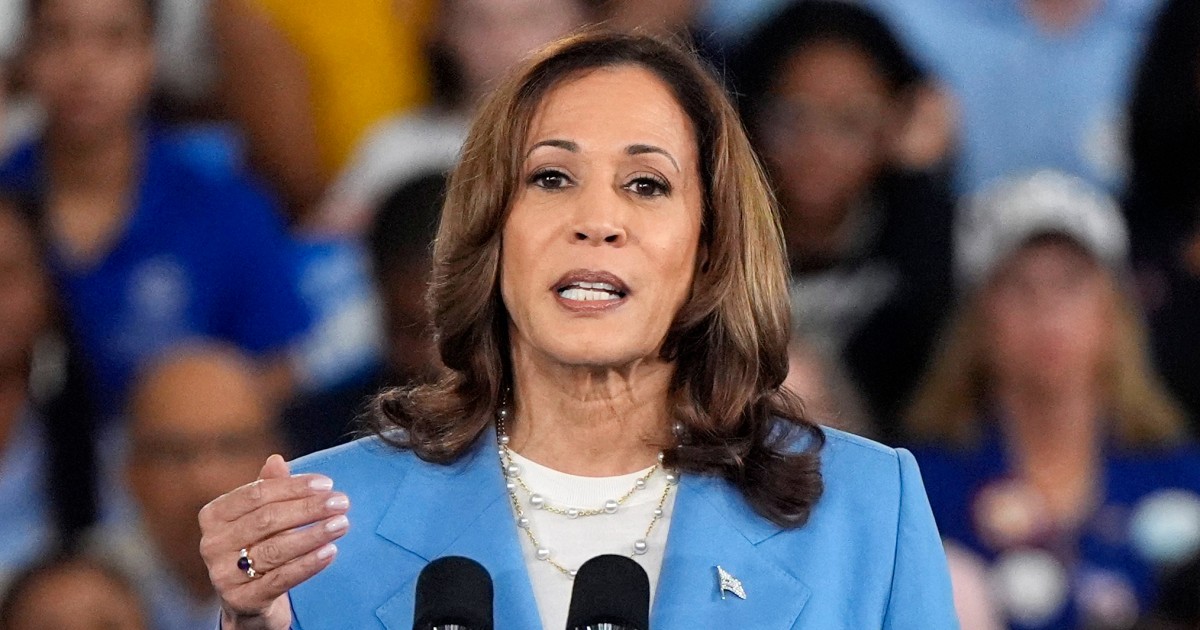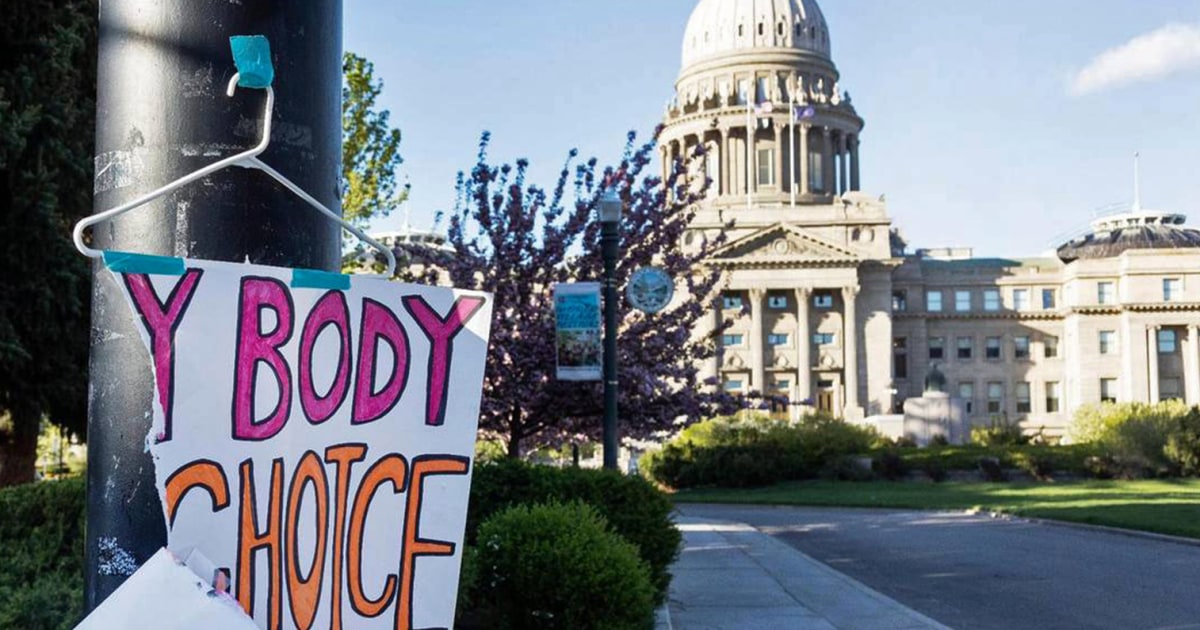CHICAGO — Vice President Kamala Harris is calling for raising the corporate tax rate to 28%, her first major proposal to raise revenues and finance expensive plans she wants to pursue as president.
Harris campaign spokesman James Singer told NBC News that she would push for a 28% corporate tax rate, calling it “a fiscally responsible way to put money back in the pockets of working people and ensure billionaires and big corporations pay their fair share.”
“As President, Kamala Harris will focus on creating an opportunity economy for the middle class that advances their economic security, stability, and dignity,” Singer wrote in an email.
If enacted, the policy would raise hundreds of billions of dollars, as the nonpartisan Congressional Budget Office has projected that 1 percentage point increases in the corporate rate corresponds to about $100 billion over a decade. It would also roll back a big part of former President Donald Trump’s signature legislation in 2017 as president, which slashed the corporate tax rate from 35% to 21%.
Trump, meanwhile, recently said he would cut taxes even further if elected president, including on businesses.
The move comes as Harris slowly adds details to her governing vision on the week of the Democratic convention, including conveying to critics how she would seek to pay for costly ideas, such as expanding the child tax credit and easing the cost of housing and medical debt. She has not provided a cost estimate of her proposals so far or matched them with pay-fors.
A 28% corporate tax rate is lower than what Harris proposed in her failed 2020 presidential campaign, when she called for fully repealing Trump’s tax cuts, which would have returned the corporate rate to 35%. The new stance aligns Harris with President Joe Biden’s most recent budget proposal.
Republicans are sure to object to a 28% corporate tax rate, meaning Harris may need Democrats to control the House and Senate in order to get it through Congress. But a potential President Harris would have some leverage over the GOP for negotiations on tax policy, as many other portions of the Trump tax cuts expire at the end of 2025, which will lead to a major debate in Congress next year about which parts to extend.
At a recent press conference, Trump predicted that Democrats will be “under tremendous pressure” to renew his expiring tax cuts next year, and “if the Democrats don’t renew them or make it impossible to renew,” it would “destroy the economy.”
Singer, meanwhile, tied Trump to an “extreme Project 2025 agenda” that he said would “drive up the deficit” and “increase taxes on the middle class,” citing estimated impacts of Trump’s proposal to impose tariffs up to 20%.


